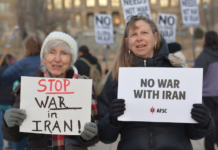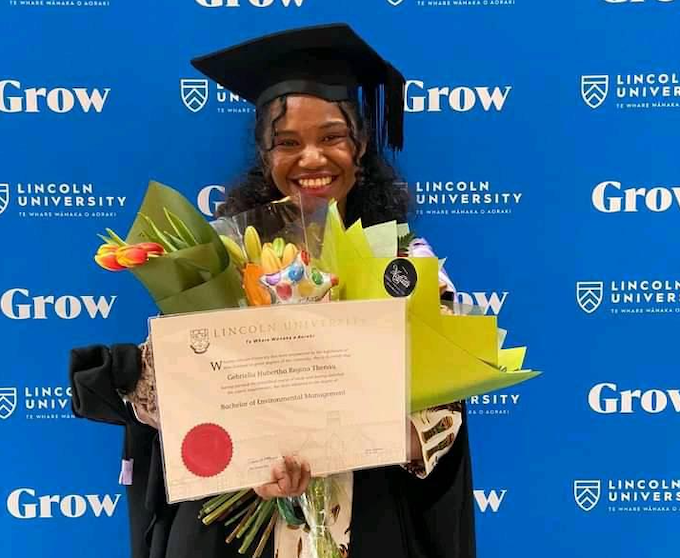
By Laurens Ikinia in Auckland
Four fresh indigenous Papuan students have graduated with degrees from Aotearoa New Zealand universities in the past few weeks to fulfil the dreams of Papuan provincial government leaders Lukas Enembe and Dominggus Mandacan.
The two governors of both Indonesian-Melanesian provinces, Enembe (Papua) province and Mandacan (West Papua) made a bold and enterprising decision to send Papuan students to pursue their higher education overseas, especially to English-speaking countries.
The four Papuan students, recipients of scholarships from the provincial governments, have graduated with masters and bachelor degrees in a variety of disciplines.
This article uses the term Papuans to refer to the indigenous people of both provinces which are generally collectively known in Australia and New Zealand as West Papua. Indigenous Papuans are of Melanesian ethnic background and non-Papuans are of other ethnic backgrounds who are living in the Melanesian land of Papua.
Nathan Sonyap (a scholarship recipient of Papua province) has graduated with a Master of International Tourism Management Studies from Waikato University and Yan Wenda (also Papua) has gained a Bachelor of Commerce in Management degree from Otago University.
Gebriella Thenau (a West Papua provincial scholarship recipient) has graduated with a Bachelor of Environmental Management from Lincoln University and Yuliktus Korain (also West Papua) with a Bachelor of Commerce in Marketing also at Lincoln.
All four told Asia Pacific Report they were grateful to study and graduate from universities in New Zealand. They dedicated their achievement to their families and the indigenous people of Papua.
Facing cultural barriers
Coming from the Melanesian and Pacific region, they said Papuans sometimes faced a lot of cultural barriers and even racial attacks. This put Papuan students under considerable pressure while studying.
However, in New Zealand they found that the “kindness and generosity of Kiwis” at the universities or in the social environment made them feel “safer and peaceful”. They expressed gratitude towards everyone who had helped them on their life and study journey.
The four graduates said that some of the challenges that they encountered included language — as English was a second or even third language for them — weather, the academic system, and culture, and other things.
Gebriella Thenau — “Gebi” as she is known — said that having an opportunity to study in New Zealand had not been even in her dreams, given that it was very expensive. She was so grateful to the government of West Papua province for awarding her the scholarship.
She said her parents always reminded her to study seriously because the government used Papuan people’s money, which her parents called “Blood Money”. She said when she received inquiries from them about when she was going to finish study, she always felt under pressure.
“My parents always reminded me to study seriously. My dad always says remember that you are using indigenous Papuan’s money,” she said.
“Despite having pressure from my family and study, I always believe that having a qualification from one of the top universities in NZ will pay off … And finally, I made it and my parents and family are proud of that,” said Thenau.
Crying for better education
Thenau, who completed her elementary to high school studies in Sorong, one of the cities that predominantly hosts non-Papuans from other parts of Indonesia, said that having supportive parents on her journey was very important.
“This is a great opportunity as our parents didn’t have an opportunity like us to study overseas — our mothers are sweating and crying on the street for their kids to get a better education, and women don’t have many opportunities in the public space,” said Thenau.
“So, I hope our success stories will wipe away their tears and sweat.”
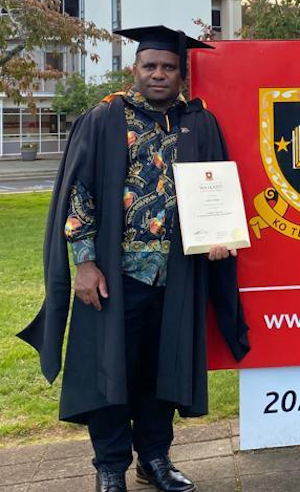
Nathan Sonyap, the first student from his tribe and church, said he was extremely grateful to Governor Enembe and the late Vice-Governor Klemen Tinal for the opportunity to study in New Zealand.
“It is truly an honour and privilege for me to study here,” he said.
Sonyap, who did his elementary to high school in Papua and bachelor’s degree in the city of Makasar-Indonesia, said he had learned so many things during his stay in New Zealand.
“Honestly, it wasn’t that easy,” he said.
Many challenges
Yuliktus Korain — “Yulko” as he is known — is an exceptional student. He was orphaned but plans to “bring light to his people”. Korain told Asia Pacific Report that in order for him to reach the level where he was now, he had gone through many challenges.
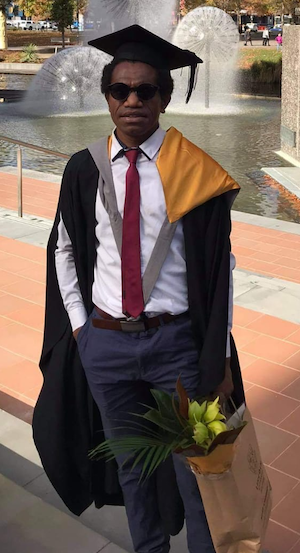
One of the challenges was because he and his younger brother lost their parents when they were still at a very young age.
“Man…it was extremely hard for me and my younger brother to face the reality when my mom passed away in 2003, just when I started my elementary school and later in 2008 my dad passed away when I was in grade 4.
“I completely lost hope. I decided to stop going to school because of financial difficulties and losing my parents. For one year, I just stayed at home and played with other kids in the village,” he said.
Korain said that he was lucky as his uncle — “an angel of the Lord” as he describes him — offered him study. He stayed with his uncle while completing his grade 4, and during grade 5 and 6, he stayed with an aunt.
Korain continued his middle school to high school while staying in a seminary. He said his groceries, stationery and other needs were looked after by the seminary.
Never celebrated birthdays
Yan Piterson Wenda, who is also the president of Papuan Student Association in Oceania, said that celebration of his graduation was something that he would always remember because he had never even celebrated his birthday previously.
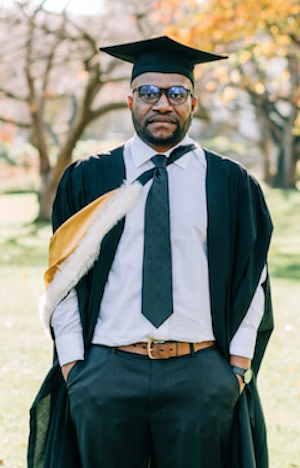
“I pay my tribute firstly to my mom because I was raised by a single mother. She is a great person in my life.
“I wish my mom could have witnessed personally the results of her prayers and hard work of selling cassava, peanuts, and other garden products. But unfortunately, it wasn’t the reality.
“My parents and family couldn’t watch the live graduation on Facebook … because the internet is still blocked in Papua,” said Wenda.
While paying tribute to the Papua provincial government, Wenda said his presence in New Zealand was the result of an enlightened “crazy programme” based on social justice to give underprivileged students a chance to study.
“I am academically not so good, but as you can see, I am granted this opportunity because the government of Papua province wants to give us an equal chance for those who come from underprivileged families and affluent families,” said Wenda.
Wenda who is now preparing himself to continue his Masters in International Business at Otago University said he followed three guiding principles — believing in God, having a firm motivation for being in NZ, and having supportive people around him.
All four Papuan graduates said they hoped the programme would continue as it would help raise the dignity of indigenous Papuans who have struggled through painful moments.
Laurens Ikinia is a Papuan Masters in Communication Studies student at Auckland University of Technology who has been studying journalism. He contributes to Asia Pacific Report.



